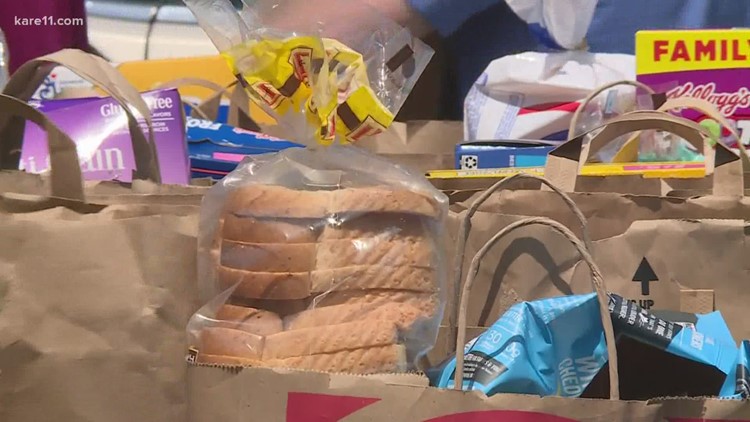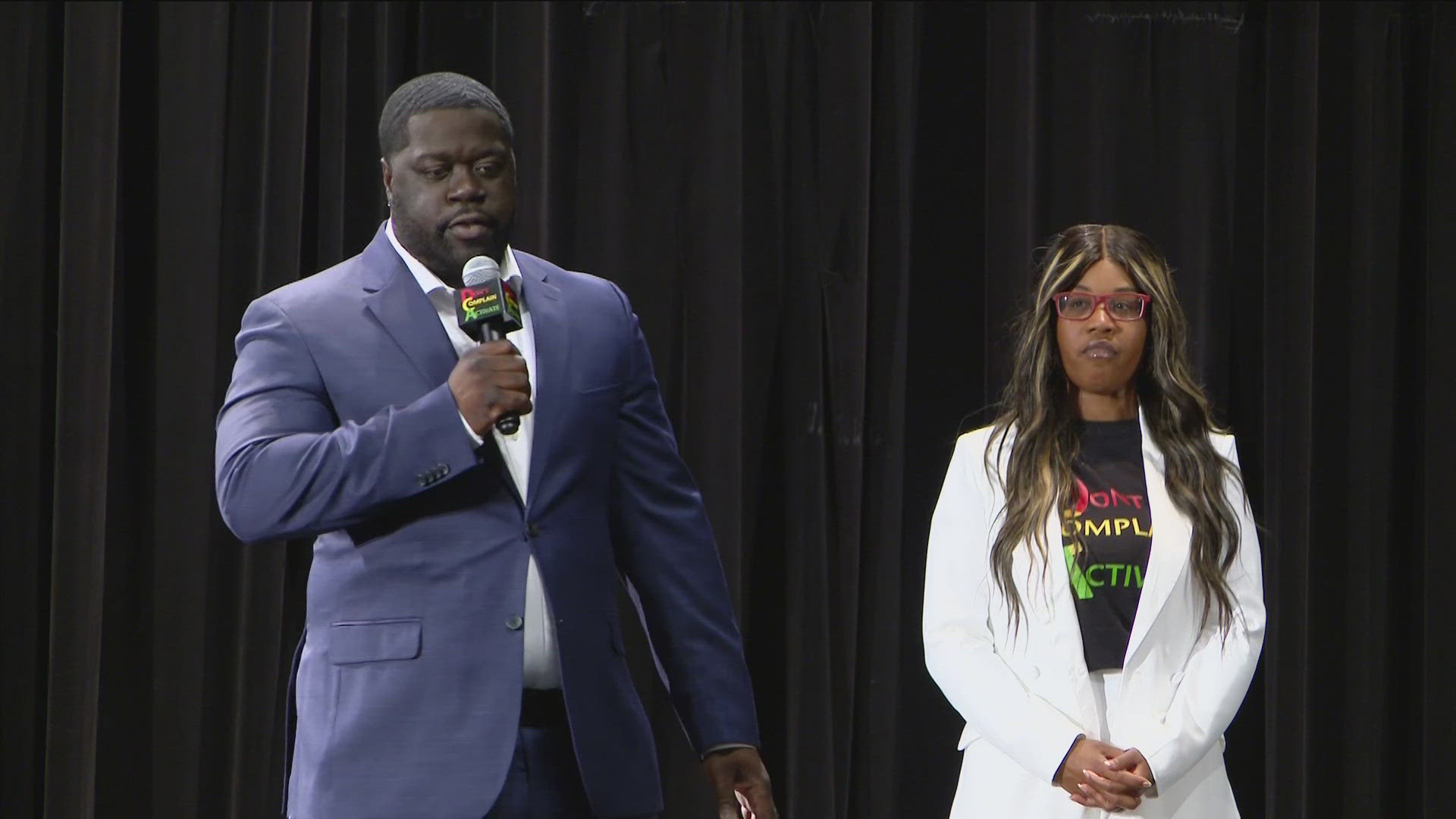MINNEAPOLIS — People who already had little access to grocery stores now find themselves in an even bigger food desert.
Countless grocery stores, restaurants and markets have either been closed or destroyed during the riots last week.
But amongst all the destruction is a glimmer of hope, and it can be found less than a block away from where it all started.
“People are really coming together,” CTUL volunteer Sanethea Barnes says.
Just one block from where George Floyd was killed last week, CTUL and other groups have set up a makeshift food shelf to serve the community.
"I'm just watching them all coming in, like cars and trucks, and they have all these things they’re dropping off," Barnes says.
Literally tons of food are being dropped over every hour here, but most of it doesn’t stick around very long.
“There’s a line of people here who need it,” Barnes says.
Many of these people, Barnes says, don’t have the ability to drive and with the buses still shut down she says many of them would have to walk several miles to get groceries.
She says the nearest chain grocery store that’s open is a Cub Foods that’s nearly four miles away.
“Food deserts” like this are popping up all over the city.
Up in the north side of Minneapolis residents are also struggling to find food.
“We found that our north side grocery stores were unavailable to our families and transportation was unavailable to our families. So, we wanted to do something,” Minneapolis teacher Kimberlee Adams says.
Adams and a few other school employees started a donation drive at Northeast Middle School to bring in food and other supplies.
"We've got multiple rooms that are just filled right now,” Adams says.
Volunteers check in every donation that comes in and then they deliver it to families in need.
"Families make requests through us and then we deliver it to them,” Adams says.
Their system is working now, but Minneapolis city leaders wonder how long the donations will last.
Homegrown Minneapolis coordinator Tamara Downs Schwei says these are short term solutions to a long-term problem.
"We don't expect this to be a short situation,” Downs Schwei says.
City leaders are now discussing medium and long term solutions to the problem.
In the medium-term they're working with food shelves and other groups to create a more stable supply of food.
"They have the coolers and ways to keep produce cool as needed and ways to distribute it," Downs Schwei says.
In the long term, the city is already discussing possible incentives for business owners who want to rebuild.
"We’re looking at what programs exist for loans and grants and capital investment that is needed to keep those businesses here in these neighborhoods. That's certainly part of the conversation," Downs Schwei says.
But in the mean time, the community will continue to rely on the kindness of strangers as long as the donations keep coming in.
The Minneapolis Public School District has sent out a formal request that community members stop sending food donations to their schools.
District leaders say volunteers are having a difficult time managing the overwhelming amount of food they’ve received.
The district is asking community members to instead send donations to a trusted food shelf that is better equipped to handle these donations.
For a list of every food shelf in the city of Minneapolis, click here.



